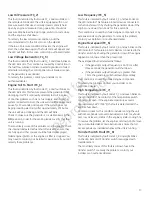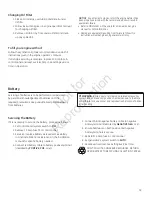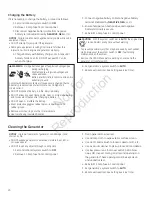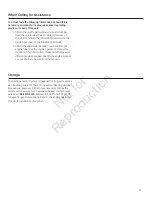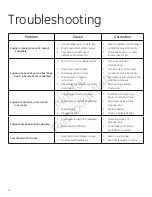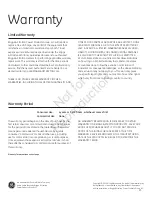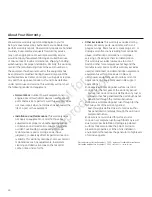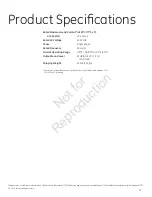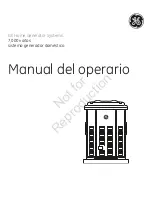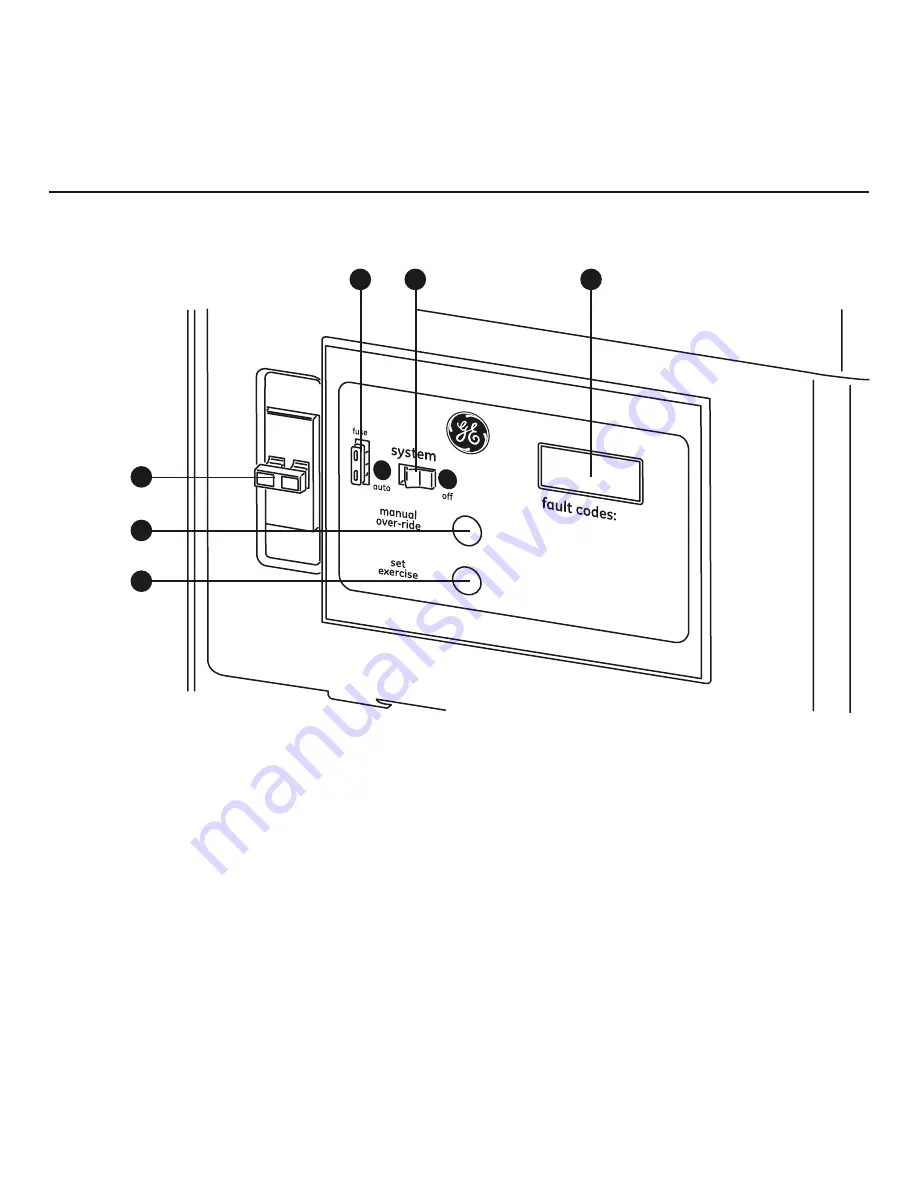
12
Compare this control panel illustration with your generator to
familiarize yourself with the location of these important controls:
System Control Panel
A ‑ Set Exercise
— Used to set the exercise cycle start time
and day-of-the-week. Exercise cycle only occurs in
AUTO
mode.
B – MANUAL OVER‑RIDE
— With system switch in
AUTO
position, push the manual over-ride switch to start the
generator. To turn off the generator, push and hold the
manual over-ride switch again until engine stops.
C ‑ Circuit Breaker
— Protects the generator from shorts
and other over-current conditions. Must be
ON
to supply
power to the automatic transfer switch.
D ‑ 15 Amp Fuse
— Protects the home generator DC control
circuits. If the fuse has ‘blown’ (melted open) or was
removed, the engine cannot crank or start. Replace the
fuse using only an identical ATO 15A fuse.
E ‑ System Switch
— This two-position switch is the most
important control on the system and is used as follows:
• “
AUTO
” position is the normal operating position. If a
utility power outage is sensed, the system will start the
generator. When utility power is restored,
AUTO
lets
the engine stabilize internal temperatures, shuts off the
generator, and waits for the next utility power outage.
• “
OFF
” position turns off running generator, prevents
unit from starting and resets any detected faults.
F ‑ Digital Display
— Displays the total number of hours
the generator has been running and fault codes. Used
to schedule maintenance tasks and for troubleshooting
operational problems with the residential generator. A
constant number displayed indicates the total hours of
operation. Fault conditions will flash “FC” followed by a
fault code number. All fault conditions are described in
Fault Detection System
.
A
D
B
E
C
F
Not
for
Reproduction

















